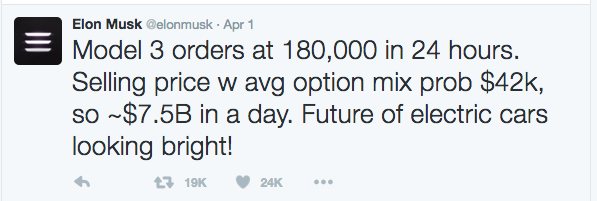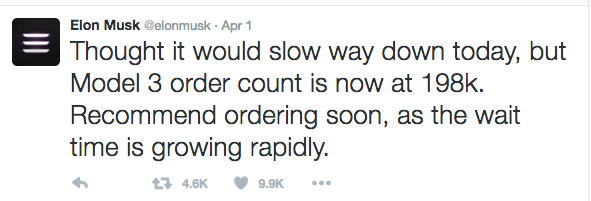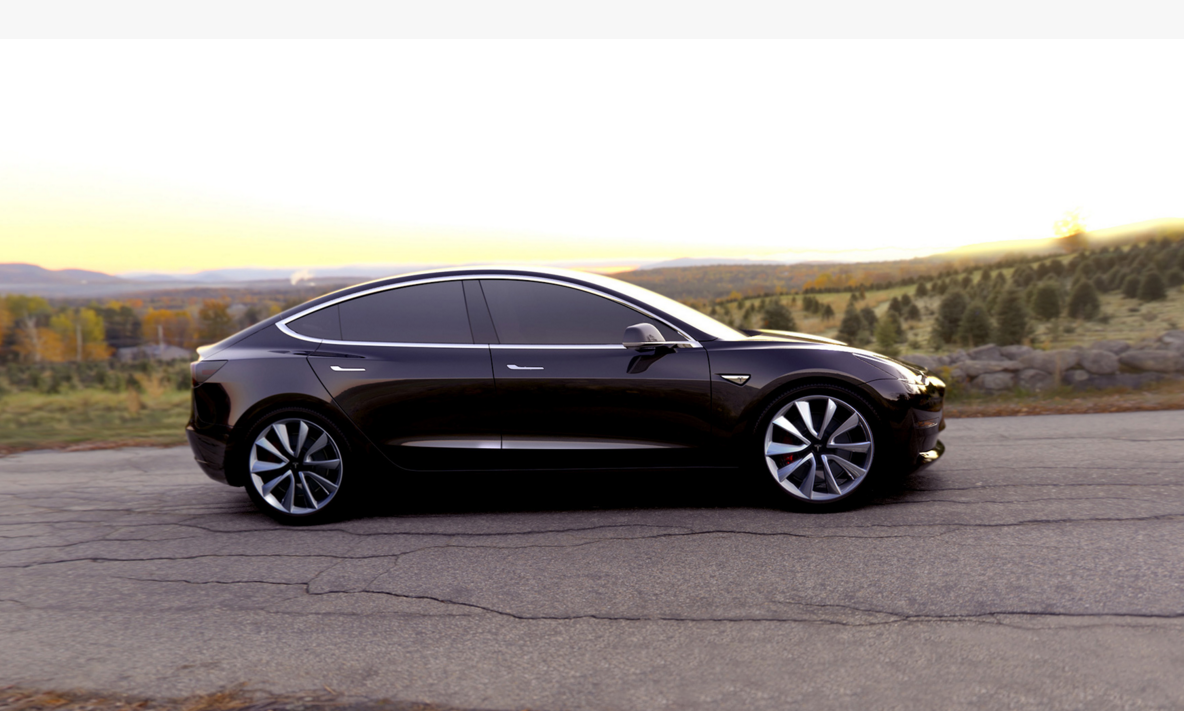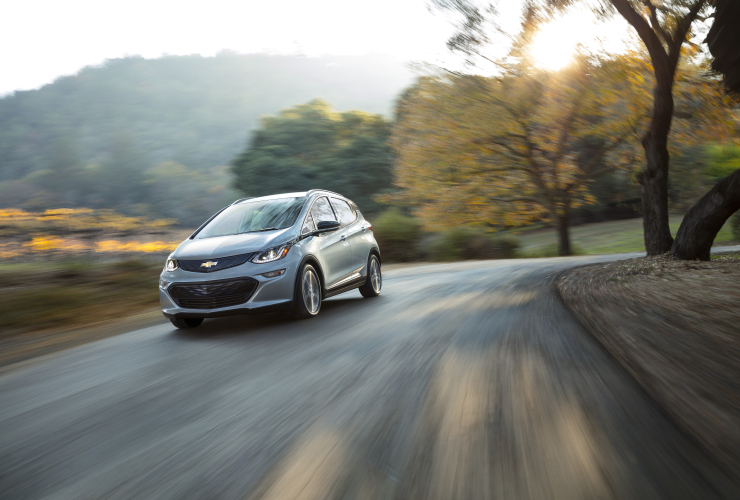Tesla Motors Model 3 launch represents the single biggest, one-week launch of any product ever. In a blog post today titled, The Day that Electric Vehicles Went Mainstream, Tesla said that corresponds to roughly $14-billion in implied future sales.
Since the California electric car manufacturer started taking reservations for the Model 3 one week ago, the company has received more than 325,000 reservations.
Tesla's launch of the Model 3. Video from YouTube
On Twitter, Elon Musk kept a running count of sales, growing more excited with each tweet.

The company said interest in the new, affordable Model 3 - which is priced at $US35,000 before incentives - spread organically.
The firm did not advertise or pay for any endorsements. Rather, Tesla called it a grassroots effort driven by the passion of its team and by “current and future customers who believe so strongly in what we are trying to achieve.”
The blog post from the Tesla team added: “Most importantly, we are all taking a huge step towards a better future by accelerating the transition to sustainable transportation.”

The Model 3 will be capable of traveling a distance of 215 miles per charge.
The car also features a major drop in price from Tesla’s Model S offering, which is about US$101,000.
Up until this point, the sales of electric cars has been minimal. Green Car Reports estimated that in 2015 Tesla delivered 25,000 to 26,000 of its Model S electric luxury sedans in the U.S.
In Canada, electric car sales form less than one per cent of new vehicle sales.

Even so, the technology has attracted the ire of the billionaire Koch brothers, who reportedly are planning to spend $10-million funding a lobby against government subsidies for electric vehicles.
The Kochs fear that “In 20 years, electric vehicles could have a substantial foothold in the U.S. market.”
Musk’s response was a laconic tweet: “Worth noting that all gasoline cars are heavily subsidized via oil company tax credits & unpaid public health costs.”
Tesla is also currently building its Gigafactory, which will manufacture enough lithium ion batteries to meet its target of 500,000 vehicles annually by 2020.





Comments